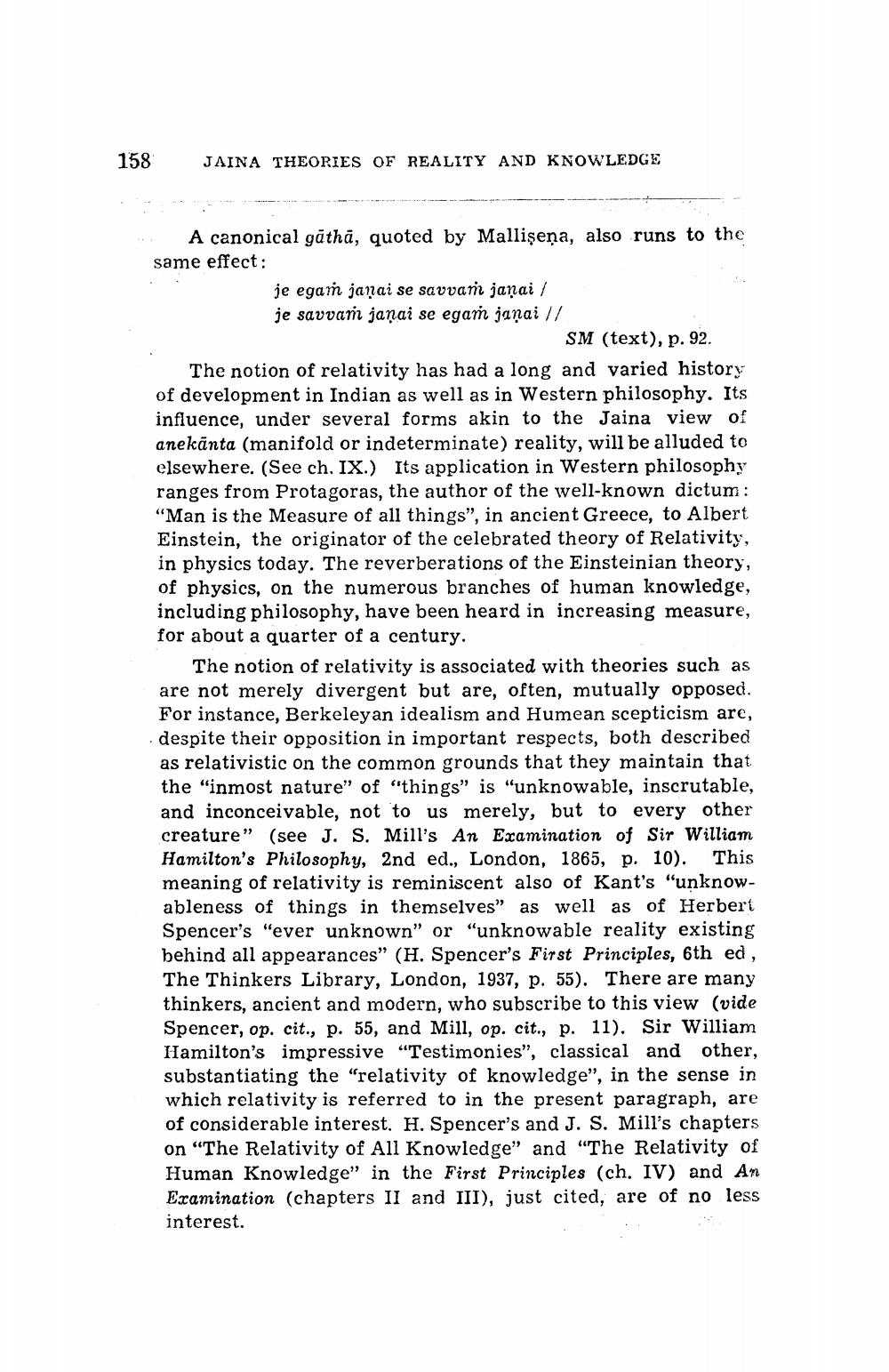________________
158
JAINA THEORIES OF REALITY AND KNOWLEDGE
A canonical gāthā, quoted by Mallisena, also runs to the same effect:
je egam janai se savvar jaņai / je savvam janai se egam janai //
SM (text), p. 92. The notion of relativity has had a long and varied history of development in Indian as well as in Western philosophy. Its influence, under several forms akin to the Jaina view of anekānta (manifold or indeterminate) reality, will be alluded to elsewhere. (See ch. IX.) Its application in Western philosophy ranges from Protagoras, the author of the well-known dictum: "Man is the Measure of all things", in ancient Greece, to Albert Einstein, the originator of the celebrated theory of Relativity, in physics today. The reverberations of the Einsteinian theory, of physics, on the numerous branches of human knowledge, including philosophy, have been heard in increasing measure, for about a quarter of a century.
The notion of relativity is associated with theories such as are not merely divergent but are, often, mutually opposed. For instance, Berkeleyan idealism and Humean scepticism are, despite their opposition in important respects, both described as relativistic on the common grounds that they maintain that the "inmost nature" of "things" is "unknowable, inscrutable, and inconceivable, not to us merely, but to every other creature” (see J. S. Mill's An Examination of Sir William Hamilton's Philosophy, 2nd ed., London, 1865, p. 10). This meaning of relativity is reminiscent also of Kant's "unknowableness of things in themselves” as well as of Herbert Spencer's "ever unknown" or "unknowable reality existing behind all appearances" (H. Spencer's First Principles, 6th ed, The Thinkers Library, London, 1937, p. 55). There are many thinkers, ancient and modern, who subscribe to this view (vide Spencer, op. cit., p. 55, and Mill, op. cit., p. 11). Sir William Hamilton's impressive “Testimonies", classical and other, substantiating the "relativity of knowledge”, in the sense in which relativity is referred to in the present paragraph, are of considerable interest. H. Spencer's and J. S. Mill's chapters on "The Relativity of All Knowledge" and "The Relativity of Human Knowledge" in the First Principles (ch. IV) and An Examination (chapters II and III), just cited, are of no less interest.




